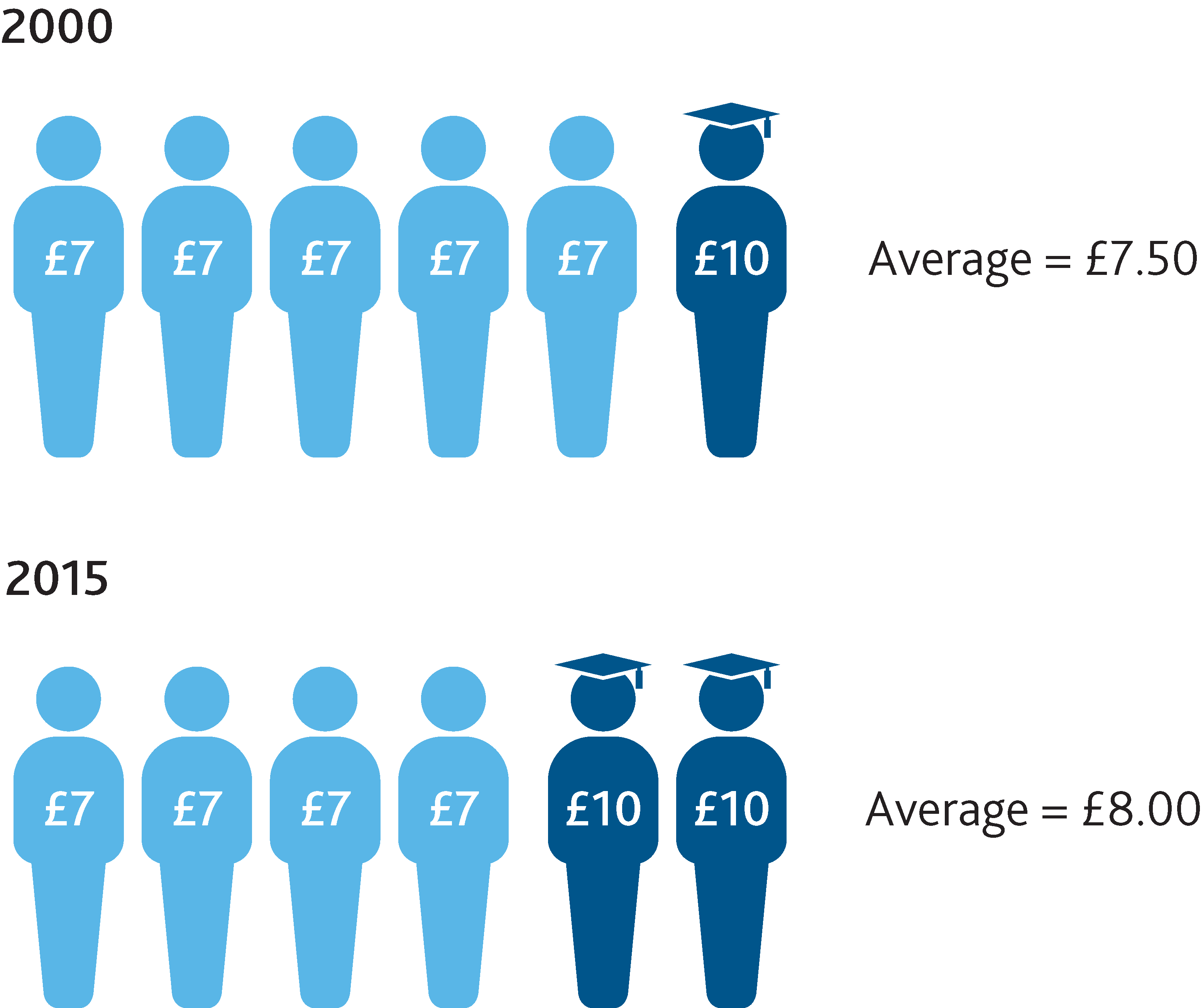By Will Abel, Rebecca Burnham and Matthew Corder of the Bank's Structural Economic Analysis Division.
Wage growth can be affected by the characteristics of those in employment. For example, if the age of those in the workforce increases, average wages are likely to increase as older workers are on average paid more. These are known as ‘compositional effects’. Measuring them is important for the Monetary Policy Committee as it needs to consider the extent to which changes in the level of wage growth, a key indicator of inflationary pressure, might be masked by compositional effects.
This article investigates the trends in these compositional effects – both the total compositional effect of a range of characteristics and the relative importance of those characteristics to the total effect – over time. It finds that there are at least five characteristics that play a significant role in determining the size of compositional effects: education, job tenure, age, the type of job the employee is doing in their firm and industry. Of these, level of education is by far the biggest contributor, explaining around 0.4 percentage points of the positive impact of compositional effects on wage growth.
However, the effect of these factors has changed over time. In particular, since 1995, the effect of having a degree has fallen substantially. In 1995 a degree would on average increase wages by 45% relative to having no qualifications at all; by 2015 this premium had fallen to 34%. The effect of long tenure on pay has also declined by around a third since 1995. And the relative earnings of those over 55 have increased since the financial crisis.
The article concludes that compositional effects have can help explain some of the weakness in measures of wage growth since the financial crisis, but that very recently these effects have begun to subside. The drag on wage growth is likely to dissipate as the labour market normalises and the effect on wages of changes in the composition of the workforce returns to normal.
The article also considers whether compositional effects might in part explain the productivity puzzle, the slowdown in productivity growth that has been seen in the United Kingdom. The article concludes that compositional effects do not help explain why productivity growth was substantially lower in the aftermath of the crisis as compositional effects were likely to be pushing up on productivity growth between 2008 and 2013. More recently, however, compositional effects do appear to explain part of the below-trend productivity growth.
